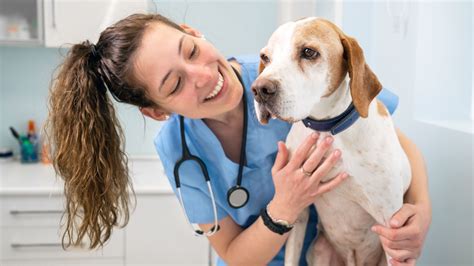Animal science is a fascinating and rewarding field that encompasses the study of animals, their biology, behavior, health, and management. For aspiring professionals seeking to delve into this dynamic realm, choosing the right college is paramount. To help you navigate the vast array of options, we have meticulously curated a comprehensive list of the best animal science colleges, empowering you to embark on an enriching educational journey.

Top Animal Science Colleges in the United States
According to the National Center for Education Statistics (NCES), there are approximately 300 colleges and universities in the United States that offer animal science programs. Among these esteemed institutions, the following rank among the very best:
| Rank | College | Location |
|---|---|---|
| 1 | University of California, Davis | Davis, CA |
| 2 | Texas A&M University | College Station, TX |
| 3 | Iowa State University | Ames, IA |
| 4 | University of Illinois at Urbana-Champaign | Urbana, IL |
| 5 | Purdue University | West Lafayette, IN |
| 6 | University of Wisconsin-Madison | Madison, WI |
| 7 | Cornell University | Ithaca, NY |
| 8 | Michigan State University | East Lansing, MI |
| 9 | Ohio State University | Columbus, OH |
| 10 | University of Florida | Gainesville, FL |
Factors to Consider When Choosing an Animal Science College
When selecting an animal science college, several key factors should be taken into account:
- Academic reputation: Research the college’s reputation for excellence in animal science education and its curriculum’s rigor.
- Faculty expertise: Inquire about the qualifications of the faculty and their research interests to ensure they have expertise in your areas of interest.
- Facilities and resources: Consider the college’s laboratory facilities, research centers, and animal care facilities to assess their adequacy and modernity.
- Location: Determine the college’s location and its proximity to agricultural communities, research institutions, and employment opportunities.
- Career services: Explore the college’s career services department and its ability to assist graduates in securing internships, jobs, and graduate school placement.
Innovative Applications in Animal Science
The field of animal science is constantly evolving, with new technologies and applications emerging to enhance animal care and management. Some innovative areas to watch include:
- Precision farming: Utilizing technology to monitor and manage animal health, nutrition, and behavior in real-time.
- Artificial intelligence (AI): Harnessing AI to analyze data and improve decision-making in animal production and welfare.
- Biotechnology: Developing new techniques to enhance animal health, production, and reproductive efficiency.
- Animal welfare science: Studying animal behavior and cognition to promote ethical and humane practices in animal husbandry.
Common Mistakes to Avoid
When choosing an animal science college, avoid the following common mistakes:
- Not researching thoroughly: Take the time to visit colleges, talk to faculty and students, and carefully compare programs before making a decision.
- Focusing solely on cost: While cost is an important factor, do not compromise quality for affordability. Consider the long-term value of the education and its impact on your career prospects.
- Ignoring career goals: Ensure that the college’s program aligns with your career aspirations and provides the necessary skills and knowledge to succeed in your chosen field.
- Underestimating the importance of hands-on experience: Animal science is a hands-on field, so look for programs that provide ample opportunities for practical work and internships.
- Neglecting student support services: Consider the college’s commitment to student success by assessing its tutoring, advising, and career counseling services.
Frequently Asked Questions (FAQs)
- What are the career prospects for animal science graduates? Graduates can pursue careers in veterinary medicine, animal nutrition, animal breeding, animal health, and agricultural management.
- How long does it take to complete an animal science degree? Most bachelor’s degree programs in animal science can be completed within four years.
- What are the job growth projections for animal science professionals? According to the U.S. Bureau of Labor Statistics, employment of animal scientists is projected to grow by 5% from 2021 to 2031, faster than the average for all occupations.
- What are some important skills for animal science professionals? Essential skills include animal biology, nutrition, health management, and communication.
- Can I specialize in a specific area of animal science? Many colleges offer specialized concentrations in areas such as animal behavior, animal nutrition, or meat science.
- What are some of the challenges facing animal science professionals? Challenges include animal welfare concerns, disease outbreaks, and climate change.
- How can I stay updated on the latest advancements in animal science? Attend conferences, read industry publications, and network with professionals in the field.
- What are some resources for animal science students? Resources include the American Society of Animal Science, the International Society for Animal Science, and the National Institute of Animal Agriculture.
